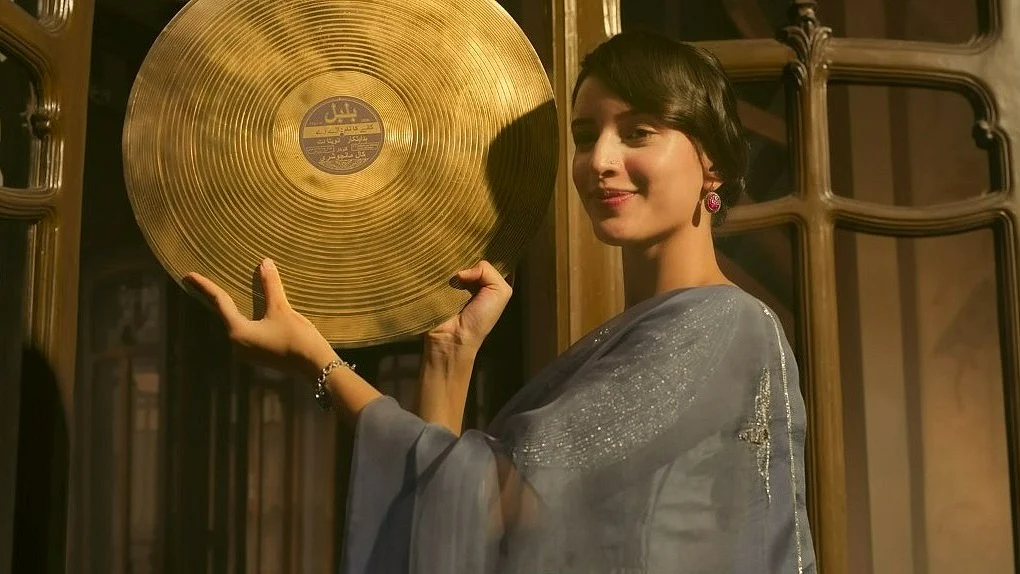'Qala' Review: True to Its Name, Triptii Dimri-Babil Khan Film is a Work of Art
Triptii Dimri and Babil Khan's film, 'Qala' is available to stream on Netflix.

advertisement
"Every decision I've ever made in my life has led me to this exact moment," I think as I cry in a fast food restaurant about something I'm sure I'd consider mundane now.
But that's a sentiment that every human echoes multiple times in their life. And Anvitaa Dutt's latest Qala is about those moments in life that are less experience, more consequence.
Qala is about a young singer Qala (Triptii Dimri) who dedicates her life to winning her mother's approval even as the latter shuts her out. The film's initial setting isolates Qala and her mother Urmila (Swastika Mukherjee) from the rest of the world, their home surrounded by ice.
Triptii Dimri in an as Qala.
(Photo Courtesy: YouTube)
In this isolation, there is a dense space between Qala and Urmila, one that the former struggles to wade through and the latter lets fester. Triptii Dimri as Qala is both radiant and demure, in essence exactly what her career demands. The film flits between her past and her present as her actions in the past continue to haunt her.
At home, Qala seems almost immature and childish (which is understandable considering her fraught relationship with her mother devoid of the affection necessary for a child to grow into a well-adjusted adult). In the present, she’s at the zenith of fame and uses her sway to uplift female artists around her.
The ways in which Qala has internalised her mother’s blame and criticism are stark on screen.
Yet Qala doesn’t make villains out of its characters. One is inclined perhaps to dislike Urmila but ‘hate’ doesn’t arise because she, too, is a character born out of her circumstance. Her quiet hesitance and loud disdain are all conveyed through Swastika Mukherjee’s remarkable skill.
A still from the film Qala.
(Photo Courtesy: YouTube)
Also worthy of mention is Babil Khan, who stars as Jagan, a talented singer who was raised in a gurdwara.
Urmila’s acceptance of Jagan contrasts her disdain for Qala (something that is also connected to the latter’s birth). Even as Qala tries to make a place for herself, there are several instances that will make you wonder, “Would Gagan have had the same experience?”
A still from the film Qala.
(Photo Courtesy: YouTube)
The way patriarchy seeps into Qala’s life is magnificently explored in the film, exploring multiple facets of how women are disadvantaged in their lives and their careers. Even beyond the story, Qala is a film of expertise in art and music.
Production designer Meenal Agarwal and Dutt manage to create a story rooted in emotions set in places that seem almost fantastical. The suffocation of Qala’s house in Himachal (with her mother) turns into a suffocation of a much more constricted space in her own residence in Calcutta.
The motifs of moths, snow, and mercury all seem out of place in their settings in the most efficient of ways. There might be flaws in the film but they are overshadowed by the makers’ vision.
Swastika Mukherjee in the film Qala.
(Photo Courtesy: YouTube)
One might have to watch Qala all over again just to catch the references to Dutch artists like Rembrandt and Vermeer. The director of photography Siddharth Diwan executes Dutt and Agarwal’s vision to perfection – not a shot is out of place.
Saving the best for the last, Qala’s music. The music by Amit Trivedi, consisting of tracks like ‘Rubaiyaan’ and ‘Shauq’, has a transforming quality to it. Every track drags the listener to 1940s Calcutta and is the kind of music Indian cinema came to be known for.
Qala is about so much more than I could fit in this review and that is telling of the film’s brilliance.
Rating: 4 Quints of 5
(At The Quint, we question everything. Play an active role in shaping our journalism by becoming a member today.)